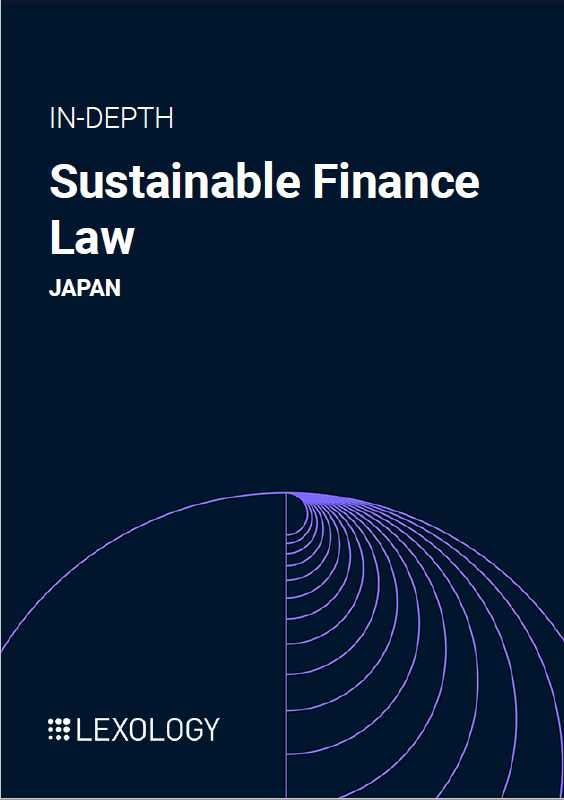
NO&T Asia Legal Review
This article is also available in Japanese.
The Ministry of Corporate Affairs of India (“MCA”) issued the Companies (Prospectus and Allotment of Securities) Second Amendment Rules, 2023 (“PAS Amendment Rules”) on 27 October, 2023 which mandates compulsory dematerialisation of securities of private companies, excluding small companies※1 and government companies (including stocks, bonds, debentures, share warrants, preference shares). “Dematerialisation” is a process by which physical security certificates are converted into electronic form. Earlier, only public companies, with certain exceptions, were required to have their securities in dematerialised form.
In order to facilitate dematerilisation of securities and offer demat securities, the company has to approach the depository (NSDL and/or CDSL) to procure ISIN (International Security Identification Number) for each type of security issued by it.
A private company may appoint a registrar to an issue and share transfer agent (“RTA”) to carry on the activities of registrar to an issue (RTI) and those of share transfer agent (STA).
A private company has various obligations under the PAS Amendment Rules vis-à-vis depository and RTA, including: (i) making timely payment of fees (admission as well as annual) to the depository and RTA in accordance with the agreement executed between the parties; (ii) maintaining security deposit, at all times, of not less than two years’ fees with the depository and RTA, in such form as may be agreed between the parties; and (iii) complying with the regulations or directions or guidelines or circulars, issued by the Securities and Exchange Board of India or the depository. If the company violates these obligations, it is prohibited from making offer of any securities, etc., till the payments to depositories or RTA are made.
In order to convert physical securities into dematerialised form, the relevant security holder must first appoint a depository participant (“DP”) such as a stockbroker in India to open an account in the name of the security holder called “demat account” with the DP. A DP acts as an intermediary between the depository and the security holder. Thereafter, the security holder is required to fill and sign a demat request form obtained from the DP with whom the demat account is to be opened and submit certain documents, such as self-attested PAN (permanent account number) card, board resolution for opening and operating of demat account, proof of address, bank account details, relevant certificates of securities (which are required to be defaced by writing "SURRENDERED FOR DEMATERIALISATION")※3. The documents submitted to the DP are required to be notarized /apostilled/consularised if they are executed outside India.
Indian companies are classified into two categories, i.e., public company and private company, and vast majority of Indian companies are private companies due to lesser compliance requirements applicable to such companies. An Indian subsidiary in the form of a private company is the most common route for establishing a local presence by a foreign investor. In such a case, in practice, with certain exceptions, there has been no advantage of issuing or holding securities in dematerialised form, therefore, securities are physically issued by the Indian company.
However, going forward, in light of the PAS Amendment Rules, all securities including shares of a private company will need to be held in dematerialised form.
A security holder has to open demat account with a DP to dematerialise the securities. To open a demat account, there are various requirements including the ones which are practically burdensome such as satisfying strict KYC (know-your-customer) requirements, submitting various documents such as board resolution, notarization of documents to be submitted, etc. It may take a few months to open a demat account and even to prepare an application of opening of the demat account, and dematerialisation process itself may take some time.
In the course of application of dematerialisation of securities, certificates of securities must be physically delivered to a DP. If the certificates are kept outside of India, relevant regulation of the country where the share certificates are located must be complied with for export of the certificates, such as obtaining approval of customs office.
With respect to an M&A transaction in which transfer of shares is involved, since dematerialisation of shares before the transfer is required under the PAS Amendment Rules, not only completion of dematerialisation by the transferring shareholder, but opening of a demat account by a transferee will also be one of the conditions precedent to closing if closing takes place on or after the Specified Date. Also, if an acquirer subscribes to shares of the target private company, not only completion of dematerialisation of securities held by its promoters, etc., but opening of a demat account of the acquirer will be one of the conditions precedent to closing. As stated above, opening of demat account and dematerialisation take some time, as such, this aspect should be taken into account in considering timeline of the transaction.
*1
Small company means a company, other than a public company, having paid up share capital not exceeding INR 40 million and turnover not exceeding INR 400 million, except for certain companies which inter alia include a holding or subsidiary company.
*2
There are two depositories in India: National Securities Depository Limited (NSDL) and Central Depository Services (India) Limited (CDSL)
*3
These are only indicative requirements. Additional documents/information may need to be submitted depending on the requirements of a DP, NSDL or CDSL.
This newsletter is given as general information for reference purposes only and therefore does not constitute our firm’s legal advice. Any opinion stated in this newsletter is a personal view of the author(s) and not our firm’s official view. For any specific matter or legal issue, please do not rely on this newsletter but make sure to consult a legal adviser. We would be delighted to answer your questions, if any.


Chattong Sunthorn-opas, Thunsinee Sungmongkol (Co-author)


Ario Putra Pamungkas


Long Nguyen


Rashmi Grover


Chattong Sunthorn-opas, Thunsinee Sungmongkol (Co-author)


Ario Putra Pamungkas


Rashmi Grover


(December 2024)
Hiromi Hattori, Yuichi Miyashita (Co-author)


Chattong Sunthorn-opas, Thunsinee Sungmongkol (Co-author)


Long Nguyen


Rashmi Grover


Anastasia Jessica Maureen


Takashi Itokawa, Takahiro Kitagawa (Co-author)


Kenji Utsumi, Masatsura Kadota, Junji Yamanaka (Co-author)


(April 2025)
Akemi Suzuki, Shuichi Nishimura, Kohei Mano (Co-author)


Rashmi Grover


Takashi Itokawa, Takahiro Kitagawa (Co-author)


Kenji Utsumi, Masatsura Kadota, Junji Yamanaka (Co-author)


Rashmi Grover


Wataru Matsumoto, Kyosuke Ohno (Co-author)


Patricia O. Ko


Ngoc Hoang


Yuan Yao Lee


Chattong Sunthorn-opas, Thunsinee Sungmongkol (Co-author)


Patricia O. Ko


Ngoc Hoang


Yuan Yao Lee


Chattong Sunthorn-opas, Thunsinee Sungmongkol (Co-author)


Rashmi Grover


Shejal Verma


Rashmi Grover


Shejal Verma, Rashmi Grover (Co-author)